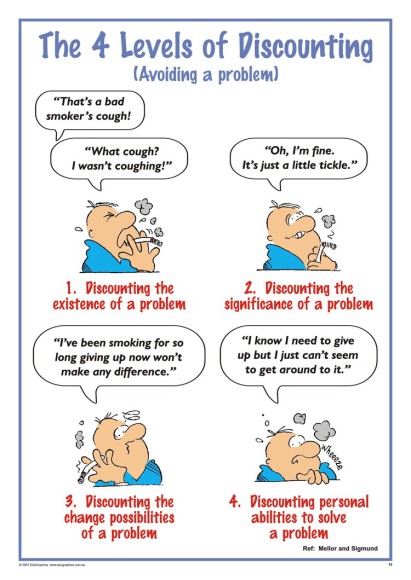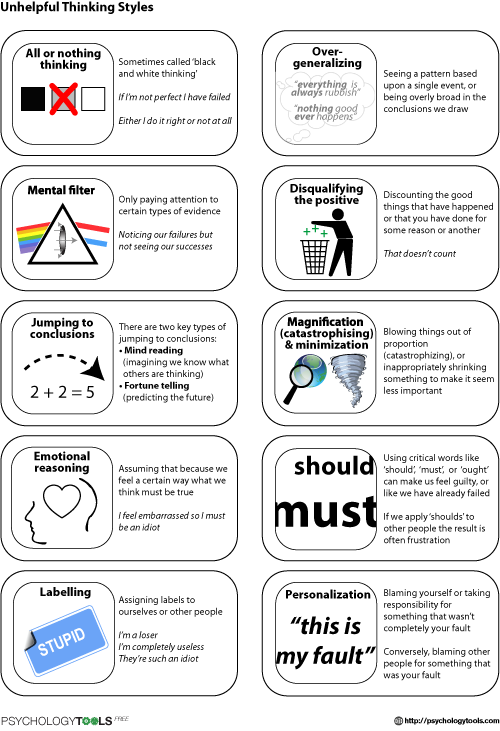We all make excuses. It might be to hide failure, to cover up fear, to save face due to a lapse in behaviour. How do we see the difference between a reason and an excuse?
I have one friend who always wants trustworthy in public, so they’ve built a defence mechanism, that they never ‘commit’ to friends to do something, so they never let them down. When you invite them to an event, they can never commit, until a few hours before. So they haven’t let you down, but you can never plan for them.
Another friend doesn’t have to take responsibility for things because when they do something it either happen (yippee), or when it doesn’t, then they say they’ve tried, and can someone else finish it for them. It let’s them off the hook for actually doing anything. Unfortunately, if someone else doesn’t deliver, then the reason is that the other person didn’t try enough.
So how do you deal with excuses?
- Test if this is a reason or an excuse
- Understand why they would say this
- Make it safe to give a different answer
- And explore taking away the barriers
- Let them save face (even if they’re wrong)
Test if this is a reason or an excuse
“I’m sorry I was late for work; the traffic was awful”.
Is this a reason or an excuse? Did the person get up too late? Did they not plan the timing for rush hour?
The first question is – does it matter? Does it matter to you that they are telling you a white lie, or is it symptomatic of something else. For example, if the friend is always late, and there’s ALWAYS a reason – then this is an excuse, not a reason.
Your choice is to decide whether to accept this white lie, for the sake of the relationship or call it out. But firstly start with you – if you were in that situation would you ALSO give a white lie? If so, then don’t be hypocritical in losing trust or seeing a lie when this is similar behaviour to yourself.
Understand why they would say this
Why might they make an excuse:
- Embarrassment – they cocked up but are too embarrassed to admit it
- Conflict with their Values – they believe themselves to be trust worthy so the excuse saves face and prevents admitting their self-delusion
- Covering a lapse in behaviour – for example, having a car ‘accident’ and saying ‘I didn’t see the cyclist’, rather than admitting concentrating on conversation vs the road
- Fear – this might be a self-limiting belief, or a ‘pre-excuse’. e.g. during exam time everyone saying they haven’t revised, so they can be ready if they don’t meet the grade.
Two other reasons why someone makes excuses
Discounting

And cognitive distortions

Make it safe to give a different answer
If someone is making an excuse you can either ‘trap’ them – which is what teachers often do, and inflict shame and punishment. The goal is to break the behaviour by the fear of consequences – but that often makes the person continue to find different excuses until they ‘get away with it’.
Another approach is to call out the elephant in the room, and then empathise to lead to another path:
- “I wonder if this isn’t really the case…”, and then share your understanding of the excuse, and how to make it different. “… I think you might have left getting up too later. How might you do this differently next time?”. If they focus on the protest, then push for the fixing next time.
- “I was on the same road and there wasn’t the traffic. Let’s say you were late getting up. It’s okay to admit that. Was that really the case?”
- “You’ve used that reason several times in the last month. I’m wondering if there’s a pattern here. So how can we break this pattern, so you’re not late”
- “I hear what you’re saying. We have the rules about being late, and you may feel that’s unfair this time. So let’s follow the rules today, and work out how to prevent this happening again..”
All these approaches are to stop the excuse next time.
Explore taking away the barriers
Now you can focus on fixing the behaviour, which can be breaking a habit, or breaking a self-limiting belief. Breaking a self-limiting belief is often the bigger breakthrough, since the other person might never have realised it before.
Let them save face (even if they’re wrong)
In the examples for making it safe, we have tried to say “it’s okay to admit this was an excuse”. So think of phrases to say it’s okay, e.g.:
- “Hey, if I was in your position I could imagine feeling really embarrassed ..” – thought empathy
- “It’s okay to admit you’ve made a mistake, because none of us are perfect”
- “Dinner in the dog, again, – wow that’s a strange diet.. maybe that didn’t happen, what did? – using humour (not humiliation, though) to laugh off the excuse and get to the real reason
Thinking about yourself …
- Are there any regular excuses you make (e.g. for procrastination, being late, not communicating etc)
- What could another person say to you for you to feel you could tell the truth?
- Think about your friends. Is there anyone who keeps using the same excuse? What could you do to break their habit, or self-limiting belief.